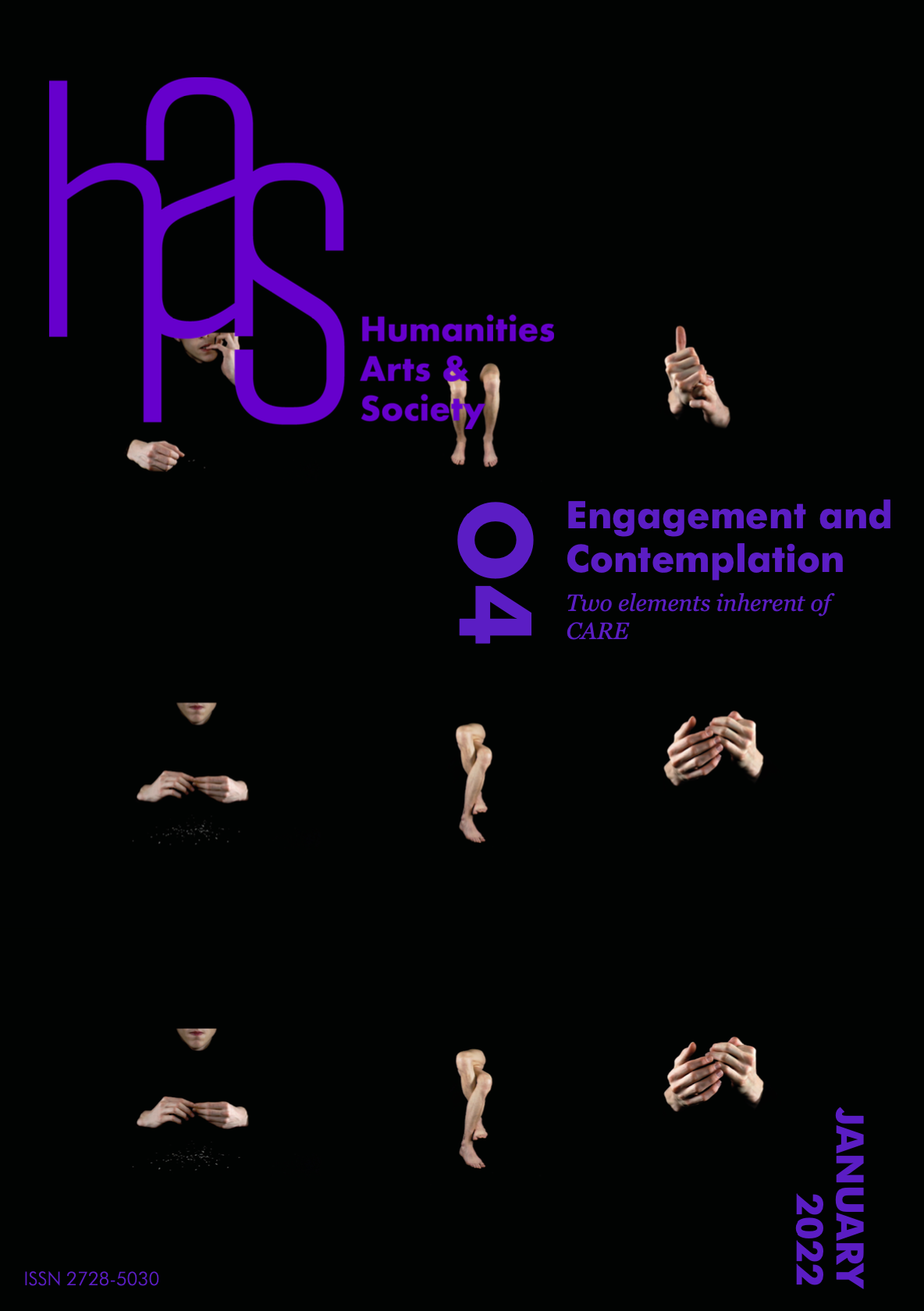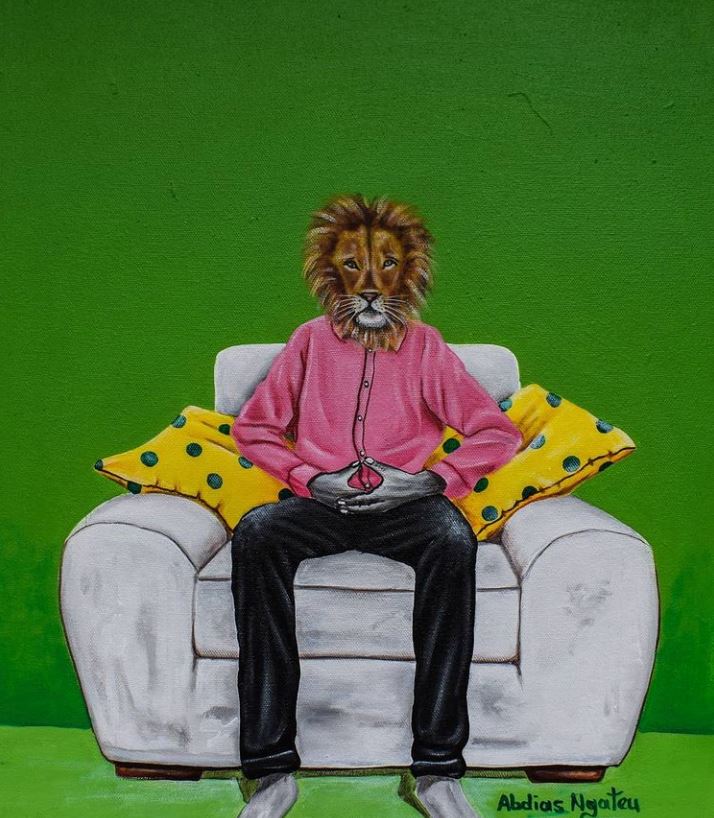
In dialogue with the works
by the artist Abdias Ngateu
“Strategies of defence, camouflage to go recognised, and even empathy and partnerships between different species – because, in unison, we are always stronger: acclimatization and flexibility to comply with daily needs, multiple communications exchanged without demanding the other…
What animal intelligence can reveal to us is extraordinary. With life, there is intelligence, as said by the famous 19th century English naturalist and palaeontologist Charles Darwin. His brilliant insights have now been confirmed by advances in modern biology and technology. Better still: we understand the critical role of each animal in the abundant variety that is nature.
Their pragmatism, their way of adaptation and their way of contributing to the world demonstrate how animals are important to us. They help us better understand the complex underpinnings of biodiversity and our fight against climate change. Their intelligence reminds us of a truth often forgotten – we are animals, like any other.”
Yolaine de la Bigne
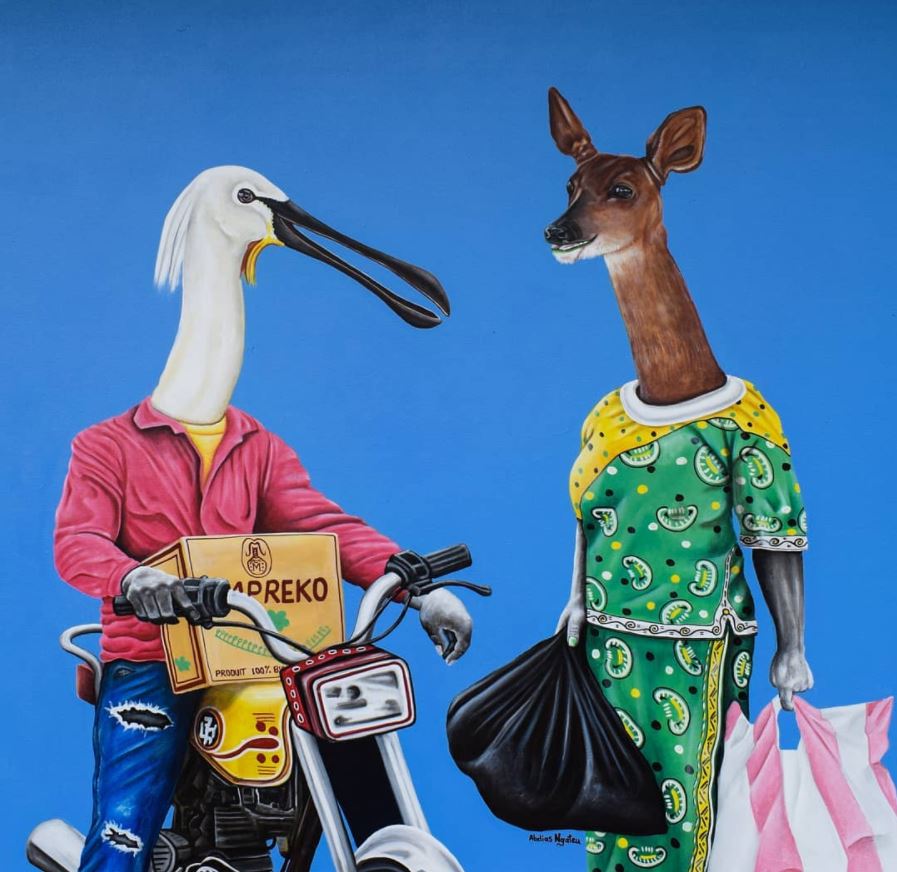
In France, some may still remember the voice of Yolaine de la Bigne who marked our everyday life with her feature on social trends, “What an epic time!” on France Info (French public radio station). A proponent for ecological conscience since her inception of the media outlet Neoplanète, she is dedicated to campaigns detailing exceptional aspects of animal intelligence. She mainly takes action through summer universities and conferences, as well as prominent publication. Her latest book, Mon année zéro souffrance animale (“My zero animal suffering year,”) published by Leduc, provides an overview of the suffering animals undergo, and calls for actions at an individual and collective level for “a great movement of reconciliation with the animal population.”
The genesis of the association, “l’Animal et l’Homme” (The Animal and Man)
Following the end of her column on France Info, Yolaine de la Bigne embarked on a cause close to her heart: ecology. With Néoplanète, the first free ecologically conscious platform, and her radio column “What an era of ethics” which she has been hosting for 12 years, she hopes that she contributed to raising awareness about the environment.
Her awareness dates back to an interview who’s theme was the disappearance of animals. It is when the interviewee brought the sixth extinction up, that she grasped the probable disappearance of mankind as well as the adaptability and intelligence of the animal world. This event pushed her to create L’Animal et l’Homme (The Animal and Man) to contribute to the defence of ecology in a novel strategy.
The last utopia?
Yolaine de la Bigne explores an exciting field of research and reflection. Animals have inherited the biological pragmatism and common sense of our ancestors. They retained their capacity for observation, solidarity, and family cohesion as a tool for survival in potentially hostile environments. Armed with an ecological rationale that humanity has forgotten, animals teach us to “change our relationship to the world and the perception of ourselves, as intelligence persists in everything that is alive (…) The term intelligence is used to denote cognition, empathy, social relations, solidarity, adaptability etc.”
Created in 2016, the non-for-profit organisation aims to facilitate the access to “a thrilling revolution which is encompasses profound ecological, scientific, and philosophical transformations, while allowing the discovery of incredible abilities of animals around us, which including domestic dogs and cats, but also worms, elephants and fish…”. Yolaine de la Bigne is currently taking action on various fronts to fight the ongoing animal genocide and to raise awareness of our codependency with animals for survival.
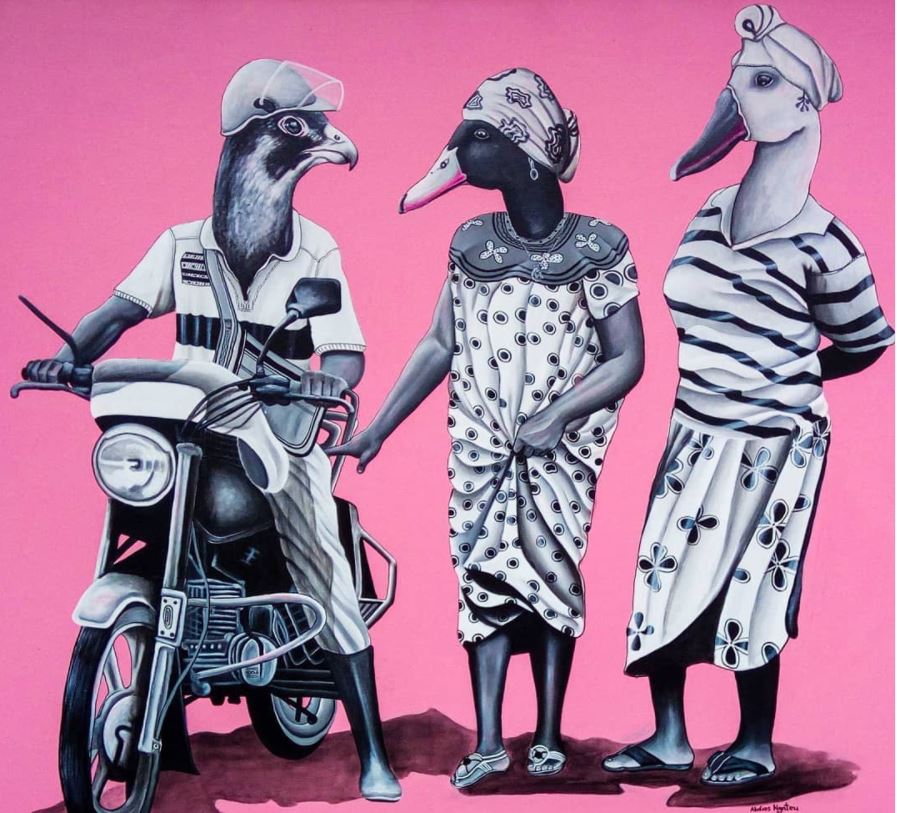
Encounters to Publications
Her structure’s first aim was to broadcast the ideas of exceptional individuals, often underrepresented in the media, advocating for this cause. The first Animal Summer University (Université d’été de l’animal) at the Château de la Bourbansais in Brittany, in 2016, marked the beginning of a series recurrent, annual meetings. This event brings scientists, historians, and philosophers together to discuss prominent discoveries that aime to change our perspectives on life, the future, and politics. These conferences progressively guided publications of collective works and manuscripts. The texts are deliberately without a particular focus in order to bring together participants passionate about a diversity of subjects and to attract the largest possible audience. Yolaine de la Bigne founded World Animal Intelligence Day (Journée mondiale des intelligences animals) in 2018, first in Thoiry, and now held and celebrated annually at the Cité des Sciences et de l’Industrie at La Villette, in Paris. In 2019, she published “The 12 Animals wisdoms ” (Les 12 sagesses des Animaux, Editions Leduc) in which the wisdoms were presented as a source of inspiration for humans. These social actions allow us to communicate and to learn amidst widespread neglect towards animals. Each species possesses their own way of living, communicating, strategizing … We tend to believe that dolphins are intelligent, yet some are, whilst others are not!
Towards The Open-Mindedness
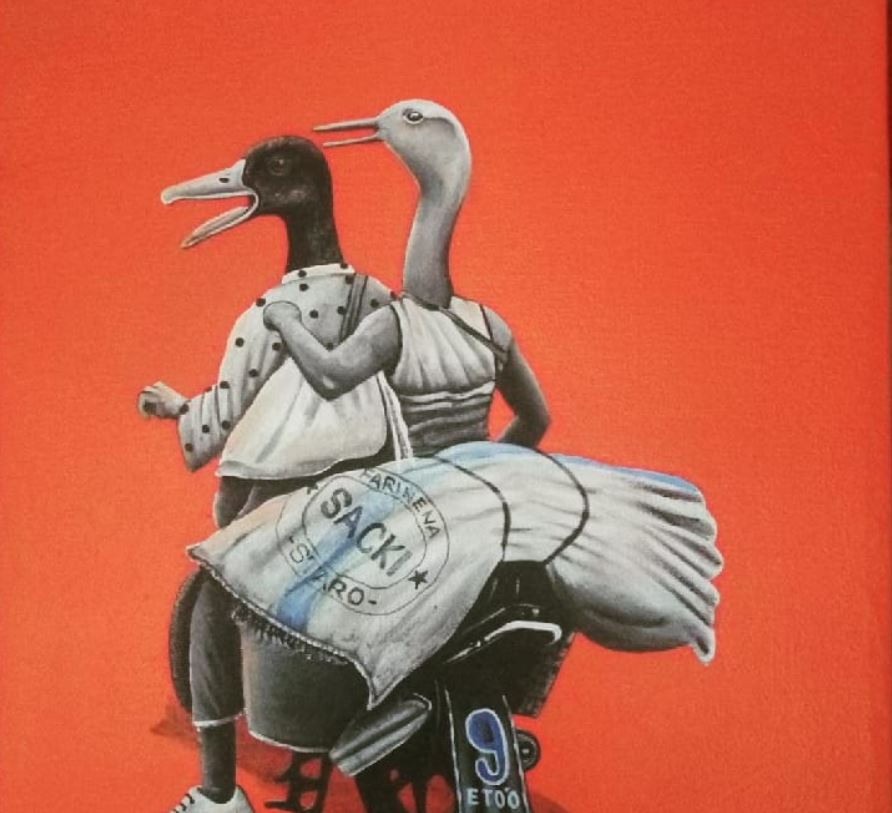
“Our education and culture have led us to inherently dislike animals such as pigeons, spiders, rats, or mosquitoes. However, when studied closely, one would realizes that they are incredible life forms. One discovers the magical universe of biological innovations and strategies. There is no such thing as unintelligence.”
During one of the Summer Schools, Yolaine de de la Bigne invited biologist and arachnologist Christine Rollard, specialist of spiders at the Museum of Natural History in Paris. While most of the attendees first seemed reluctant, they were nevertheless passionate about the conference and even agreed to participate in a workshop led by the specialist following conference. There, within minutes, the participants were in wonder, on all fours, scrutinizing a tiny spider. Their encounter with a passionate and charming specialist was enough to make them fall in love with the animal. Knowing the other – animal or man – leads to more open-mindedness and to the recognition of the need of a respectful cohabitation on Earth. For example, the mosquito – a particularly unloved insect – is a pollinator and feeds bats.
The latest the Summer School
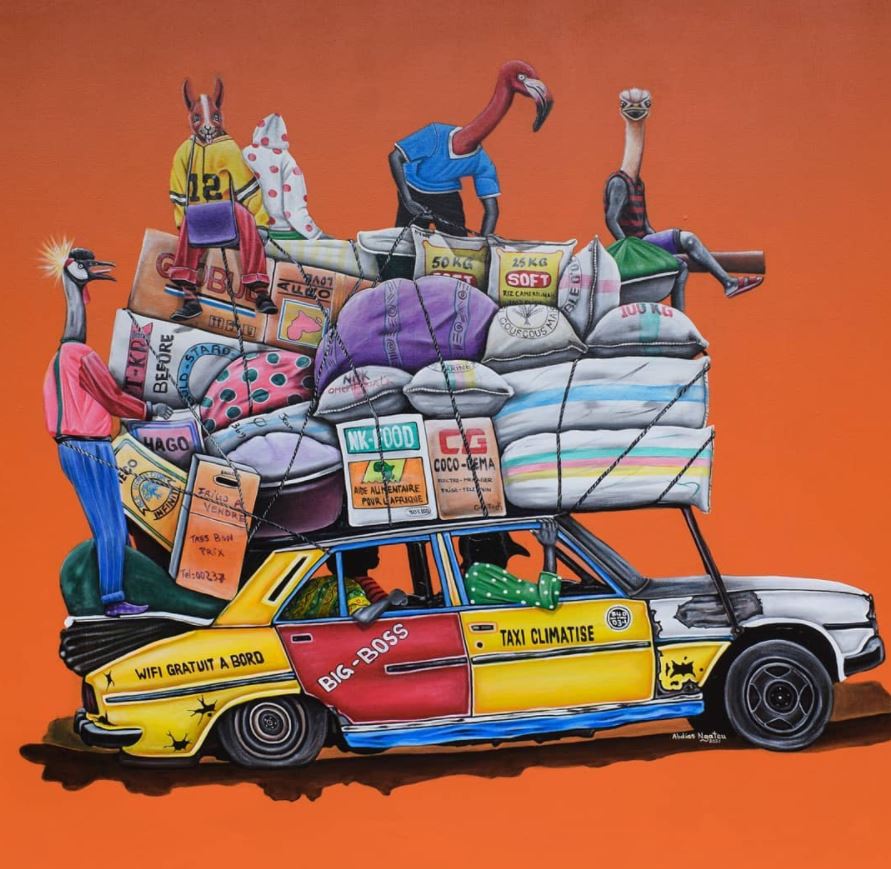
The 2021 edition was sponsored by Jane Goodall. As with every meeting, the great diversity of participants taking part to this sixth event facilitated many diverse, unexpected, and rewarding encounters.
This instalment brought many incredible speakers together, such as biologist Benoit Grison, who spoke about zoopharmacognosy (study of animal pharmacopoeia) and the phenomenon of ‘healer animals’. Providing numerous examples, Grison spoke of animal who have to heal one another:
– Monarch butterflies lay their eggs on specific plants, especially chosen because they contain a toxic poison (cardenolides). Monarch caterpillars have adapted to and have become immune to cardenolides. The eggs not only become inedible for predators but also resistant to internal parasites.
– In Africa, elephants consume certain herbs that allow them to give birth more quickly.
– The great tits have a highly developed sense of smell. To provide a healthy environment for their offspring, the tits line their nests with plants with anti-fungal and bactericidal properties such as lavender, mint, or helichrysum.
– Atta ants, endemic to South and Central America, harvest and cultivate lepiota mushrooms which they protect with natural fungicide or antibiotic.
The source of inspiration for modern medicine is ever more apparent.
The philosopher Joëlle Zask addressed the subjects she approached in her latest book: “Zoocities, wild animals in the city” (Zoocities, des animaux sauvages dans la ville; Éditions Premier parallèle, 2020). She puts forward the observation that wild animals are increasingly settling in urban cities in correlation with the rise of urbanization and climate change.
“Foxes in the gardens of London, wild boars in the streets of Marseille, leopards in the narrow roads of Bombay, coyotes in the parking lots of New York, kangaroos in the streets of Canberra; driven away from the countryside that is becoming more hostile – due to pollution, urbanization, or disruption by climate change – wild animals are now inhabiting in cities. They adapt to it. This phenomenon is on the rise. What if, tomorrow, we had to learn to directly interact with them on a daily basis?”
Further, we are urged to conceive of a city no longer antagonistic towards wild animals but accepting of their positive aspects for safe, urban co-existance.
Zask’s book reports on existing urban initiatives and architectural projects. “What would become of the physical appearance of a city in which its spaces facilitate coexistence with wild animals? A city not against animals or for them, but with them?” Will the city develop into the new Noah’s ark?
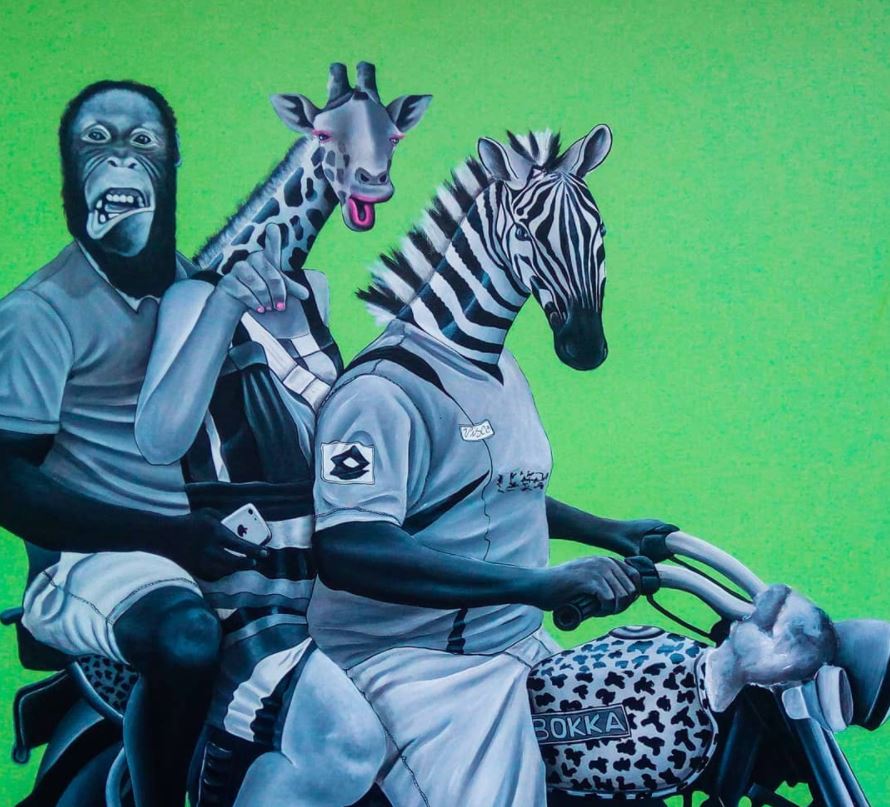
My year of zero tolerance towards animal cruelty
Yolaine de la Bigne’s latest book, “My zero animal suffering year” (Mon année zero souffrance animale; Éditions Leduc, 2021) is a complete guide to take action on an everyday basis. This book is not only an inventory in 12 themes of the various sufferings undergone by animals in the world for various reasons such as work, fishing, habitat, play, cleanliness, captivity, abandonment, hunting, our ego…but also a panorama of solutions to each of these sufferings, in the form of individual or collective actions, and the progress that has already been made (section: “Things are moving!”). Yolaine de la Bigne thinks that the fight for animals is not too different for the fight for women’s rights and the fight against racism.
Next World Animal Intelligence Day in preparation
Yolaine de la Bigne is currently preparing for the next World Day of Animal Intelligence which will take place in the auditorium of La Villette on Saturday, February 5, 2022. She plans to invite Michèle Bourton, founder of the Candide pedagogy: the developed relationship between learning and the presence of cats.
Bourton was mistreated by her mother, who forced her to sleep in the cellar, and was saved thanks to the cats who came to provide warmth and purring. Purring therapy has been proven to be beneficial for social behavior and academic performance. After founding the Candide school for children in difficulty in France, Michel Bourton closed the school to open a different one in Africa for wild and domestic animals.
ABOUT ABDIAS NGATEU’S ARTWORKS
Through the animal figures in his works, Abdias Ngateu investigates the place that humans give themselves: that of being at the centre of existence. His scenes are mainly urban as the artist considers that the city is both the place where human beings detach themselves from nature, and the place where most social relations are organised.
The hybrid profiles presented in his paintings propose a series of questions about otherness. Today, the anxiety-induced climate favours the fear of our peers and affects the balance of our interrelationships. In the urban jungles where we live, could we be inspired by animals and their habits in order to find harmony?
Florence Valabregue (Master of Performing Arts and CELSA / Sorbonne), communicates for many theatres, including the infamous Bataclan, before writing for the French weekly L’Express in Toronto, Canada, Signatures Singulières, Maison magazine, Maison Française and Médiapart. She managed the communication of the Bibliothèque historique de la Ville de Paris and the cultural events of Parisian libraries before managing a European Social Fund project for France Terre d’Asile. She created the communication and media consulting agency Les Mots pour vous dire to respond to the problems of small and medium-sized companies specialising in arts and crafts, luxury goods, decoration and interior design.
Yolaine de la Bigne is a print and radio journalist and author, and a committed ecologist. She created the Fêt Nat’ in 2006, a nature festival in Paris with fashion shows and activities (Femme en Or Environnement 2007). She also founded the first free environmental magazine, Néoplanète, and the first 24-hour web radio to defend a positive and joyful ecology. Since 2016, she has focused on the 6th extinction and the animal intelligences that are shaking up our vision of the world with two annual events: the Université d’été de l’animal and the Journée mondiale des intelligences animales, whose conferences are assembeled in a series of annual books. In 2019, she signed Les 12 sagesses des animaux (Leduc) and in 2021 Mon année 0 souffrance animale (My Year of Zero Animal Suffering).
www.lanimaletlhomme.com and YouTube channel: Les intelligences animales
Abdias NGATEU has a degree in sociology from the University of Douala in Cameroon. He has participated in numerous exhibitions on the African continent: in Cameroon, Senegal, Burkina Faso … And notably in 2015 at La Nuit Blanche of the French Institute of Douala in Cameroon, as well as Dak’art off in 2018. In 2017 Abdias Ngateu won the 3rd prize Pascale Marthine Tayou at the young hopefuls competition
Florence Valabregue (Master of Performing Arts and CELSA / Sorbonne), communicates for many theatres, including the infamous Bataclan, before writing for the French weekly L’Express in Toronto, Canada, Signatures Singulières, Maison magazine, Maison Française and Médiapart. She managed the communication of the Bibliothèque historique de la Ville de Paris and the cultural events of Parisian libraries before managing a European Social Fund project for France Terre d’Asile. She created the communication and media consulting agency Les Mots pour vous dire to respond to the problems of small and medium-sized companies specialising in arts and crafts, luxury goods, decoration and interior design.
Yolaine de la Bigne is a print and radio journalist and author, and a committed ecologist. She created the Fêt Nat’ in 2006, a nature festival in Paris with fashion shows and activities (Femme en Or Environnement 2007). She also founded the first free environmental magazine, Néoplanète, and the first 24-hour web radio to defend a positive and joyful ecology. Since 2016, she has focused on the 6th extinction and the animal intelligences that are shaking up our vision of the world with two annual events: the Université d’été de l’animal and the Journée mondiale des intelligences animales, whose conferences are assembeled in a series of annual books. In 2019, she signed Les 12 sagesses des animaux (Leduc) and in 2021 Mon année 0 souffrance animale (My Year of Zero Animal Suffering).
www.lanimaletlhomme.com and YouTube channel: Les intelligences animales
Abdias NGATEU has a degree in sociology from the University of Douala in Cameroon. He has participated in numerous exhibitions on the African continent: in Cameroon, Senegal, Burkina Faso … And notably in 2015 at La Nuit Blanche of the French Institute of Douala in Cameroon, as well as Dak’art off in 2018. In 2017 Abdias Ngateu won the 3rd prize Pascale Marthine Tayou at the young hopefuls competition
